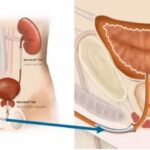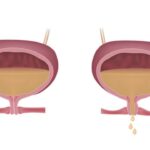
Summer is a beautiful time of year for outdoor activities, but it can be a particularly challenging time for those who suffer from kidney stones. Kidney stone pain is often more frequent during the summer months as the heat and humidity can increase the likelihood of stone formation.
Kidney stones are a common problem that affects many people each year. While the severity of the pain varies, it can be very intense and debilitating. Many people wonder if kidney stone pain occurs more frequently in the summer months.
The simple answer is yes. The heat of summer can be a major contributing factor to kidney stone pain. During the summer months, the body is more likely to become dehydrated. This can lead to a decrease in urine production, which makes it more difficult for the body to flush out any stones that may be present. As the stones become larger, they become more difficult to pass and can cause intense pain.
Kidney stones are small, hard deposits that form in the kidneys and can cause severe pain when they move or pass through the urinary tract. They can be caused by a variety of factors, including dehydration, certain medications, and dietary habits. But the most common cause of kidney stones is dehydration – when the body does not get enough fluids, the concentration of minerals in the urine increases and can cause stones to form.
The summer is typically a time when people are more likely to become dehydrated due to increased physical activity, such as swimming or playing sports. In addition, the heat and humidity can contribute to dehydration, as the body uses more water to cool itself down. This can increase the risk of stone formation and lead to more frequent kidney stone pain.
Other risk factors for kidney stone formation during summer months include consuming too much salt or animal proteins, or not getting enough dietary calcium. These dietary habits can increase the concentration of minerals in the urine, which can lead to stone formation.
To reduce the risk of kidney stones during the summer months, it is important to stay well-hydrated by drinking plenty of fluids throughout the day. It is also important to limit salty and high-protein foods, as well as to make sure you are getting enough dietary calcium.
Kidney stone pain is an uncomfortable and even excruciating experience, so it is important to be aware of the factors that can contribute to its formation. By taking steps to stay hydrated and maintain a healthy diet, you can help reduce the risk of kidney stone formation and associated pain.
Finally, heat exposure can also be a risk factor for kidney stone pain in the summer months. When the body is exposed to high temperatures, it can cause the body to become dehydrated and increase urinary calcium excretion. This can lead to an increased risk of stone formation and subsequently, an increase in the risk of pain associated with kidney stones.
Overall, kidney stone pain can be more common in the summer months due to a variety of factors. It is important to stay hydrated and avoid salty foods and excessive heat exposure to reduce the risk of developing kidney stones. If you are experiencing any symptoms of kidney stones, it is important to contact your doctor for further evaluation and treatment.




